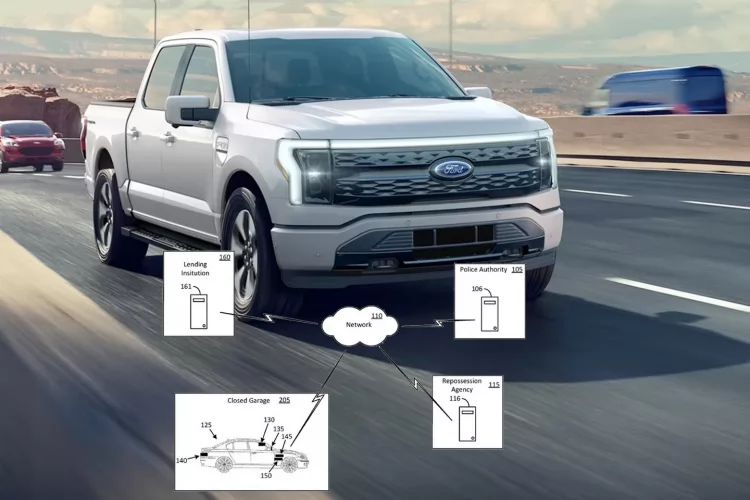Most people are aware that electric vehicles (EVs) are seen as a sustainable alternative to traditional cars, but you might not fully grasp the significant environmental impact of their battery waste. As the demand for electric cars grows, so does the need for effective recycling solutions to manage spent batteries. If left unaddressed, the toxic materials within these batteries could pose serious threats to ecosystems. Understanding the complexities of EV battery recycling is necessary to ensuring a more sustainable future for your electric car and the planet.
Key Takeaways:
- Sustainability: Recycling EV batteries is vital for promoting environmental sustainability and reducing waste associated with battery production and disposal.
- Resource Recovery: Effective recycling processes can recover valuable metals and materials, minimizing the need for new raw material extraction and supporting a circular economy.
- Technological Innovation: Advances in recycling technologies are necessary to improve efficiency and reduce costs, making battery recycling a viable and competitive industry in the electric vehicle market.
The Importance of EV Battery Recycling
To understand why EV battery recycling is necessary, you must consider its overarching implications for both the environment and the economy. As electric vehicles (EVs) become increasingly popular, the number of used batteries will rise significantly, and proper recycling processes will ensure these batteries do not end up in landfills, where they can cause environmental harm. For a deeper look into the lifecycle of EV batteries, check out this insightful discussion about What *Really* happens to used Electric Car Batteries? The significant volume of materials recycling can help meet the growing demand for battery components while mitigating negative environmental impacts.
Environmental Impact
Among the chief concerns with improperly disposed of EV batteries is the potential for harmful substances to contaminate soil and water sources. Components like cobalt, nickel, and lithium can leach into the ground, posing risks to ecosystems and human health. By recycling batteries, you are contributing to a process that prevents these toxic materials from causing serious threats to both the environment and communities. Additionally, recycling reduces the need for new raw materials, minimizing the environmental damage associated with mining and extraction processes.
Moreover, the manufacturing of new batteries is often an energy-intensive process that contributes to greenhouse gas emissions. Recycling old batteries can significantly lower the carbon footprint associated with battery production. By reusing existing materials, you help conserve energy and decrease pollution, making it a more sustainable approach to meeting your energy and transportation needs.
Resource Recovery
Between the various components of EV batteries, there is significant potential for resource recovery. Many of the materials used in lithium-ion batteries, like lithium, cobalt, and nickel, are precious and in high demand for future production. Effective recycling processes can recover these valuable materials and reintroduce them into the supply chain, lessening dependence on virgin resources and creating a more circular economy. By embracing recycling, you play an active role in this vital process.
For instance, research shows that up to 95% of lithium and cobalt can be recovered from old batteries, which can then be reused to create new batteries. This not only preserves valuable resources but also stabilizes supply chains that might otherwise be susceptible to price volatility and geopolitical issues.
Economic Benefits
Recycling EV batteries is not just environmentally sound; it also presents several economic advantages. By investing in recycling technologies and infrastructures, job opportunities in the green economy arise, as skilled workers are needed to handle the collection, sorting, and processing of these batteries. Moreover, as the recycled materials become a staple in battery production, companies can reduce costs associated with acquiring new raw materials, allowing savings to be passed on to consumers. This makes electric vehicles more affordable and accessible.
Economic studies suggest that a robust EV battery recycling industry could contribute to billions of dollars in economic activity while maintaining sustainability. As demand for electric vehicles grows, positions within this sector are expected to expand, creating a win-win situation for both your wallet and the planet.
Current State of EV Battery Recycling
If you are looking to understand the pressing concerns surrounding electric vehicle (EV) battery recycling, it is imperative to recognize that the industry is still in its infancy. As EV adoption accelerates, the number of used batteries requiring recycling will increase significantly. Current recycling practices are largely inadequate for addressing the forthcoming surge in battery waste. The technologies we have available today are just the beginning of what you can expect in the future.
Recycling Technologies
After examining what exists today, various recycling technologies are being developed to improve the efficiency and effectiveness of battery recovery. Mechanical processes, pyrometallurgical processes, and hydrometallurgical processes are the three primary methods employed in EV battery recycling. Mechanical recycling generally involves the physical separation of battery components, while pyrometallurgy involves melting the battery materials to retrieve valuable metals. In contrast, hydrometallurgy employs chemical solutions to extract materials, which can be more environmentally friendly and less energy-intensive. Each of these methods comes with its own set of advantages and limitations, which manufacturers and recyclers are currently evaluating as they work towards sustainable solutions.
Ongoing research aims to develop more advanced and cost-effective methods that not only yield a higher rate of recovery for components like lithium, cobalt, and nickel, but also minimize the use of harmful chemicals and energy requirements. As you consider the impact of battery recycling, it’s clear that innovation in these technologies is paramount for the future of the electric car industry.
Global Recycling Initiatives
Current developments in global recycling initiatives indicate a growing awareness regarding the importance of sustainable practices in the EV sector. Various governments and organizations worldwide are stepping in to create frameworks that promote effective recycling processes. This includes implementing regulations that hold manufacturers accountable for the life cycle of their products, as well as incentivizing the establishment of recycling facilities.
With international collaboration on the rise, numerous pilot programs and research projects are being launched to increase the rate of battery recycling. Countries like Japan and Germany are leading the charge by developing innovative take-back schemes and incentivizing consumers to return their used batteries. You may find that these initiatives not only address the immediate waste issue but also foster a circular economy for battery materials, thus reducing the demand for raw material extraction and promoting environmental sustainability.
Challenges and Limitations
By delving into the challenges and limitations related to EV battery recycling, it becomes evident that there are several hurdles to overcome. One of the most significant barriers is the current lack of standardized processes across different regions. Variations in battery chemistry and design can complicate recycling efforts, making it difficult for recyclers to implement efficient and uniform retrieval methods. Furthermore, insufficient infrastructure for collection and recycling makes it challenging to handle the anticipated volume of used batteries effectively.
Understanding these obstacles is vital for you as a stakeholder in the electric vehicle ecosystem. There is a need for comprehensive regulations and investment in recycling facilities to improve the overall system. Addressing these challenges will be imperative for ensuring that the electric vehicle industry can scale sustainably and responsibly, particularly as vehicle ownership continues to grow.
Policy and Regulation
After the rapid surge in electric vehicle (EV) adoption, the need for effective battery recycling policies has become more pressing. Your understanding of government regulations, incentives, and industry standards is key to managing the environmental impact of EV battery disposal. As these policies evolve, they will shape the future of the electric car industry, ensuring that it remains sustainable and environmentally friendly.
Government Incentives
About government incentives, various programs have been introduced to encourage the recycling of EV batteries. These incentives can include tax breaks for companies that invest in battery recycling technologies and grants for research and development aimed at improving recycling methods. By leveraging these benefits, you can contribute to a sustainable battery lifecycle and help minimize hazardous waste. Moreover, manufacturers may find it beneficial to engage in proactive recycling initiatives, which can enhance their brand reputation and consumer loyalty.
In addition to financial incentives, education plays a significant role in motivating both consumers and businesses to participate in battery recycling programs. Organizing community integration events or workshops can provide you with information about how to recycle EV batteries responsibly. This kind of outreach is necessary for raising awareness about the importance of recycling and promoting compliance with regulations surrounding battery disposal.
International Regulations
Policy changes at the international level also significantly impact EV battery recycling. Various countries and regions are implementing strict regulations to govern battery disposal, recycling ratios, and lifecycle management. You should be aware of the difference in regulatory environments, as they can affect the global supply chain for EV batteries. Compliance with international regulations ensures that your operations align with worldwide sustainability goals, which can benefit long-term market positioning.
In fact, many countries are moving toward more rigorous compliance requirements that mandate the recycling of a certain percentage of battery materials. This shift not only addresses environmental concerns but also pushes manufacturers to innovate new recycling technologies that deal with the unique challenges of lithium-ion batteries. By staying informed about these regulations, you can make decisions that support a circular economy in the EV sector.
Industry Standards
Before you investigate the EV battery recycling landscape, you need to familiarize yourself with the increasing standards set by industry organizations. These standards often include guidelines for safe battery handling, collection methods, and recycling processes. Adhering to these standards not only protects the environment but also enhances safety for workers involved in battery recycling operations. Companies that follow these guidelines can also reinforce a positive public image and attract environmentally conscious consumers.
Indeed, the establishment of stringent industry standards is vital for ensuring effective battery recycling. As these standards develop, they will define best practices for both manufacturers and recycling facilities in handling spent batteries and reprocessing materials. By embracing these standards, you not only meet legal requirements but also position yourself as a leader in sustainability within the expanding electric vehicle market.
Future Perspectives on EV Battery Recycling
Unlike traditional vehicle batteries, electric vehicle (EV) batteries present unique challenges and opportunities in the recycling landscape. As the demand for electric cars continues to surge, the need for effective battery recycling processes becomes increasingly significant. You may find that addressing these challenges is critical for not only sustainability but also for the overall growth and acceptance of electric mobility. The future of EV battery recycling hinges on innovative solutions that can transform end-of-life batteries into valuable resources, reducing reliance on raw materials and minimizing environmental impact.
Innovations in Recycling Processes
The landscape of EV battery recycling is witnessing remarkable advancements. Innovations in recycling processes promise to increase the efficiency of material recovery, ensuring that precious metals like lithium, cobalt, and nickel are effectively harvested from spent batteries. Techniques such as hydrometallurgical processes and advanced pyrolysis are being developed to optimize extraction while minimizing negative impacts on the environment. You should stay updated on these technological breakthroughs as they can significantly enhance the sustainability of the EV sector.
Moreover, the integration of automation and artificial intelligence (AI) into recycling operations allows for improved sorting and processing of battery materials. This can lead to faster turnaround times and reduced operational costs. As you explore the future of EV battery recycling, consider the potential of these innovations to create a more circular economy, where materials are reused and repurposed instead of discarded.
Collaboration in the Industry
An effective approach to tackling the challenges of EV battery recycling lies in collaboration across the industry. Stakeholders, including automakers, battery manufacturers, and recycling companies, need to work together to develop standardized practices and frameworks for efficient recycling. Through partnerships, you can witness shared resources, knowledge, and technology that strengthen the recycling ecosystem.
Future initiatives may involve joint ventures to establish recycling facilities capable of processing large volumes of EV batteries. This collaboration can also extend to legislative bodies, which can create incentives or regulations that encourage responsible recycling practices. You can play a role in advocating for these collaborative efforts, as they will ultimately shape a sustainable future for electric vehicles.
The Role of Consumers
At the same time, consumers play an integral role in the EV battery recycling narrative. As an electric vehicle owner, you should educate yourself about the lifecycle of your battery and the options available for recycling once it reaches its end of life. Engaging in recycling programs not only contributes to environmental preservation but also supports the broader movement towards a sustainable automotive industry.
In addition, your purchasing decisions can influence how manufacturers approach battery design and recycling. By opting for brands that prioritize recyclability and sustainability, you help drive demand for responsible practices within the industry. This proactive approach ensures that the entire ecosystem of electric vehicles becomes more sustainable, benefiting not just the environment but also the economy.
And as consumer awareness rises, pressure on companies to implement sustainable practices intensifies. Your voice matters, and by championing recycling initiatives and choosing eco-friendly options, you can assist in steering the market towards greater accountability and responsibility. This collective effort is imperative for achieving a successful and sustainable transition to electric mobility.
Summing up
To wrap up, as you explore into the electric car industry, it’s crucial to acknowledge the emerging challenge of EV battery recycling. With the increasing reliance on electric vehicles, you must consider the potential environmental impact of battery disposal and the need for sustainable solutions. Understanding the importance of developing effective recycling processes for lithium-ion batteries will not only contribute to minimizing waste but also enhance the sustainability of the electric vehicle ecosystem. Your awareness and advocacy in this area can drive demand for innovative recycling technologies and practices, which are vital for the industry’s future.
Moreover, as you explore the benefits of electric vehicles, it’s crucial to view battery recycling as an integral part of the broader conversation about sustainability and resource management. Emphasizing circular economies within the EV sector will empower you to make informed decisions about your personal and societal needs. As manufacturers strive for better battery technologies and recycling programs, your engagement with these developments can help pave the way toward a cleaner and more sustainable transportation future.
Q: What are the main components of EV batteries that need to be recycled?
A: EV batteries primarily consist of lithium, cobalt, nickel, and manganese, among other materials. These components are imperative for energy storage and efficiency in electric vehicles. Recycling these materials is important not only to recover valuable resources but also to minimize environmental impact. The recycling process helps to reduce the need for mining new raw materials, which can be both costly and environmentally damaging.
Q: What challenges does the electric car industry face in establishing effective EV battery recycling?
A: The electric car industry faces several challenges in establishing effective EV battery recycling systems, including the need for advanced recycling technologies, the development of standardized processes, and the logistics of collecting used batteries. Additionally, the industry must navigate regulatory frameworks that vary by region, ensuring compliance while promoting sustainable practices. Educating consumers about the importance of proper disposal and recycling of EV batteries is also vital in encouraging participation in recycling programs.
Q: How can consumers contribute to the EV battery recycling efforts?
A: Consumers can play a significant role in EV battery recycling by ensuring they return their used batteries to designated collection points or recycling facilities. Many automotive dealerships and service centers have programs in place for proper disposal of old batteries. Additionally, consumers can advocate for and support legislation that promotes recycling initiatives and manufacturers that prioritize sustainability in their operations. Staying informed about local recycling programs will also help facilitate responsible disposal of EV batteries.



